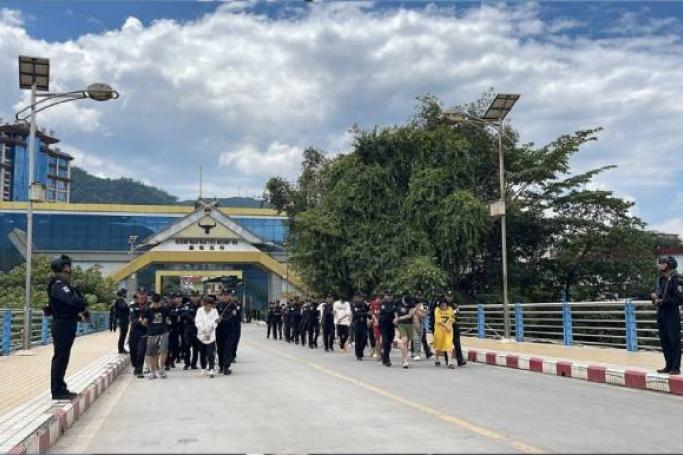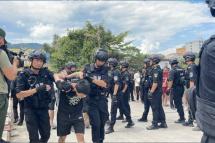The United Wa State Army (UWSA) handed over 1,207 suspects allegedly connected to online scams linked to Chinese police at a border gate between Myanmar and China on 5 and 6 September.
Nyi Rang, a UWSA liaison officer said to Mizzima that the handover was carried out at the border bridge in Pangsang town.
“All of these suspects are Chinese citizens. They were arrested in Wa State this year, and all of them were handed over to Chinese police on 5 and 6 September. This is the highest number of [of suspects] that we have handed over. It’s more than previous times”, said Nyi Rang, adding that women were among the returned suspects, but their ages could not be established.
Online scam gangs are operating in Pangsang, Mong Pawk and Wane Kaw towns in the territory under the control of the UWSA; in Laukkai and Chinshwehaw in Kokang self-administered region; and in Myawaddy and Shwekukko in Kayin State.
The Chinese embassy in Myanmar said, in a 26 August press statement, that 24 Chinese citizens involved in online scams were transferred to the Chinese police at Yangon International Airport over a period of four days.
China, Thailand, Myanmar and Laos held a meeting in Chiang Mai, Thailand, from 15-16 August to combat rampant gambling-related fraud and associated crimes in the region.
The four countries agreed to establish a cooperation centre for the operation in Chiang Mai to intensify their efforts against crimes such as human trafficking, kidnapping, and illegal detention, all stemming from gambling and fraud activities prevalent in the region.
The National News Bureau of Thailand reported that the joint mission will seek the cooperation of Cambodia and Vietnam, as well as international entities like Interpol and the United Nations.
Hundreds of thousands of people in Southeast Asia have been forced to take part in scam operations, according to the United Nations human rights agency.













